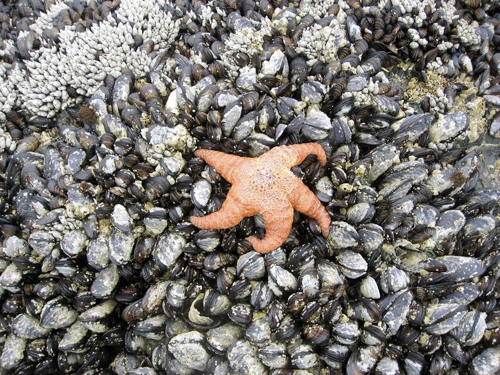Welcome to the class wiki. Begin here: Introduction
This class is taught by Dr. John Wares in the Genetics Department at the University of Georgia. It is an Honors class, with 10-15 students who have taken this elective to expand their understanding of evolutionary biology and how it is applied to contemporary problems (see Syllabus). The goal of this semester is to explore why evolutionary theory (and analyses) may be useful in understanding how marine diversity will respond to climate change.
Overview
In May 2009, marine scientists and evolutionary biologists gathered on Santa Catalina Island (near Los Angeles, CA) to discuss climate change in the ocean and what evolutionary biology could contribute to the predictions being made about changes in distribution and biodiversity. A "white paper" was produced at the end that summarized some of this discussion; it was certainly not an end point, but a very informal beginning toward identifying the best paths for further research.

Challenge
At the beginning of the semester the class will go through a (fun!) crash course in evolutionary biology which will serve as a great lead-in to the regular GENE 3000 lecture course they will be taking simultaneously. The rest of the semester will involve each student reading two papers a week: one assigned to everybody, and one that the student finds that meets their own particular interests related to the questions in the ECCO report linked above. Each week, the student will add what they have learned to this wiki in a way that builds a resource. This resource will reflect our current understanding of how the evolution of populations and species in the coming decades and centuries could ameliorate or contribute to the response of those populations to climate change, including changing temperatures, ocean acidification, etc.
The results of this challenge are developing; start on the Introduction page.
 photo by Chris Harley, related to a study on how global warming influences intertidal predation
photo by Chris Harley, related to a study on how global warming influences intertidal predation
Comments